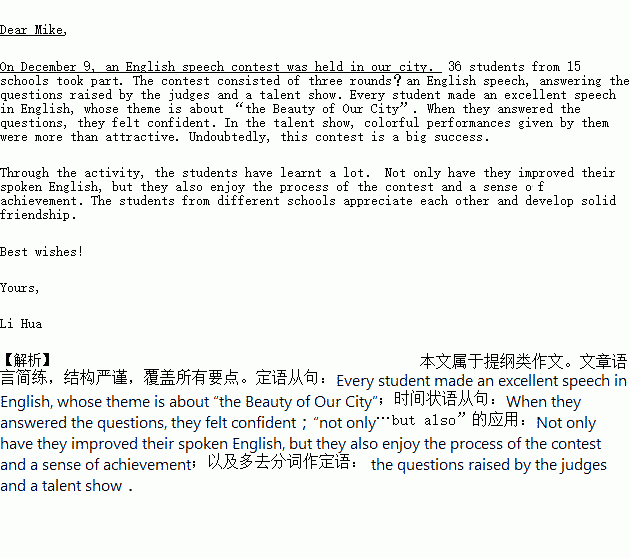题目内容
假定你是李华,你的澳大利亚笔友Mike发来电子邮件,询问最近你市举办的“最美家乡”英语演讲比赛活动的情况。请给他回一封电子邮件,介绍以下该活动。要点如下:
1. 来自全市15所36名学生参加了此次英语演讲比赛;
2. 比赛分为三个环节:英语演讲、回答评委提出的问题和才艺表演;
3. 活动的意义。
注意:1. 词数100左右。2. 可适当增加细节,使行文连贯。
Dear Mike,
On December9, an English speech contest was held in our city.________________________________
_______________________________________________________________________________________
_______________________________________________________________________________________
_______________________________________________________________________________________
_______________________________________________________________________________________
_______________________________________________________________________________________
_______________________________________________________________________________________
_______________________________________
Yours,
Li Hua
 阅读快车系列答案
阅读快车系列答案| A. | found | B. | will find | C. | had found | D. | have found |

